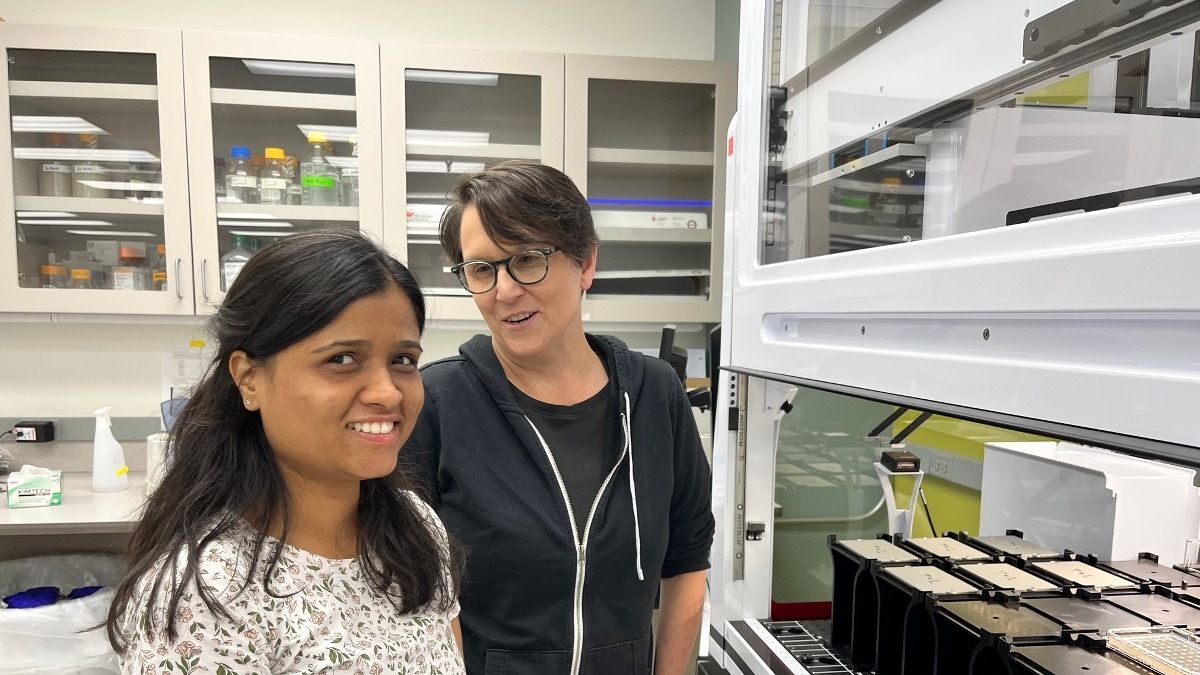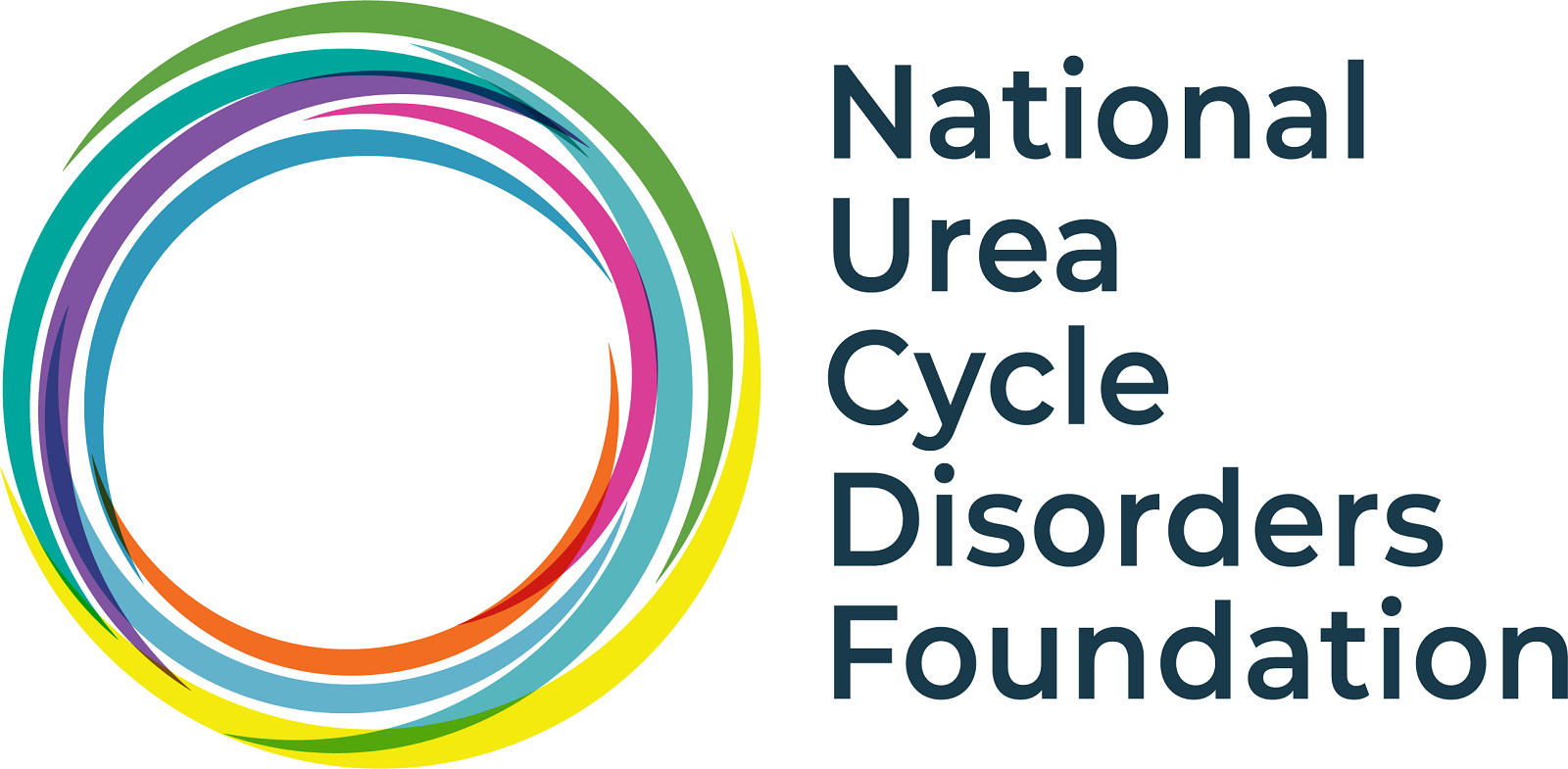
The National Urea Cycle Disorders Foundation (NUCDF) is pleased to announce that it has awarded the 2025 Cynthia Le Mons Fellowship to Shradha Suyal, PhD, a postdoctoral fellow at the Pacific Northwest Research Institute (PNRI). Suyal (pictured above, left) works in the lab of Aimée Dudley, PhD (pictured above, right), who uses yeast genetics to study the severity of genetic variants causing urea cycle disorders (UCDs).
Suyal, a molecular biologist, will be researching arginase 1 deficiency, a rare UCD caused by genetic variants in the ARG1 gene. This condition leads to high levels of arginine in the blood, which can cause severe health problems such as developmental delays, neurocognitive deficits, seizures, loss of mobility, and even death.
The Cynthia Le Mons Fellowship supports early-stage investigators and their research in UCDs and is funded by NUCDF’s annual Cure the Cycle event. This year, the Arginase 1 Deficiency Foundation is also lending support through its upcoming Hope on the Court pickleball tournament fundraiser.
“We are thrilled to support Dr. Suyal’s work and welcome her into the NUCDF family of fellowship recipients,” says Tresa Warner, NUCDF’s executive director. “We believe her work will help us build a future of improved diagnostics, therapies, and quality of life for individuals and families affected by UCDs.”
Suyal’s work will focus on:
- Measuring the functional impact of variants in the ARG1 gene that are likely to arise in humans to help physicians and health care providers determine the potential for variants to cause disease.
- Assessing the effects of combinations of genetic variants found in individuals with arginase 1 deficiency to predict the overall risk associated with different genetic profiles.
- Identifying genetic variants that produce versions of the Arg1 protein with increased activity, which could lead to improved enzyme replacement therapies for patients with arginase 1 deficiency.
“This work not only allows me to explore fundamental questions in metabolism but also aligns closely with my goal of contributing to research that can directly benefit patients and their families,” says Suyal. “Through this fellowship, I plan to work closely with clinicians and research collaborators to translate genetic knowledge into advanced clinical treatment options, ultimately improving clinical outcomes and providing hope to families affected by this rare disorder.”
Suyal has already begun working with Dudley, who says her expertise in molecular biology adds a new dimension to the variant analysis work that is underway at PNRI. “After only a few months in our lab, Shradha has already used her biochemical knowledge to significantly improve the efficiency of one of our foundational test procedures,” Dudley says.
The Arginase 1 Deficiency Foundation and its director Christine Zahn are pleased to help support Suyal’s work. “With more researchers devoting their time and expertise to uncover answers for rare diseases like arginase 1 deficiency, we know we are getting closer to an approved treatment and, ultimately, a cure,” says Zahn. “Every step forward means the possibility of saving another life—or making someone’s life easier.”
About the Fellowship
NUCDF's Cynthia Le Mons Fellowship aims to attract promising new clinicians and researchers to the field of UCDs. Past fellowship recipients have transformed the UCD treatment landscape, leading to discoveries in enzyme treatment for arginase 1 deficiency and transformational research on the role of nitric oxide in arginosuccinic aciduria (ASA, also known as argininosuccinate lyase deficiency or ASL).
The 2014 NUCDF Fellowship was awarded to Lindsay Burrage, MD, PhD, of Baylor College of Medicine. Under the mentorship of Brendan Lee, MD, PhD, Burrage conducted groundbreaking laboratory research which showed that using arginase enzyme to treat mice with arginase 1 deficiency resulted in reduced blood arginine levels. Her work was foundational for the development of arginase 1 enzyme therapy (pegzilarginase), which is now approved by the European Medical Agencies for treatment of arginase 1 deficiency and currently under review by the U.S. Food and Drug Administration. Burrage, now a tenured Associate Professor at Baylor College of Medicine, has made significant contributions in the field of rare disorders and is a Multiple Principal Investigator for the Baylor College of Medicine Center for Precision Medicine Modeling and a member of the NUCDF Medical Advisory Board.
Previous NUCDF Fellowship awardees include Oleg Shchelochkov, MD (2009), Ayelet Arez, MD PhD (2008), and Sandesh Nagamani, MD (2011). Their work has resulted in transformational research on the role of nitric oxide in ASA, understanding of the role of urea cycle enzyme ASL in functions outside of the urea cycle, and the role of urea cycle enzymes in cancer, high blood pressure, and neurological diseases.
Shchelochkov is now a Senior Clinician and Director for the Medical Genetics and Genomic Medicine Training Program at the National Human Genome Research Institute of the U.S. National Institutes of Health. Erez is now Sir Ernst B. Chain Professorial Chair, and Dean of Faculty of Biology, Weizmann Institute of Science, Israel. Nagamani is now Professor and Vice Chair for Clinical Research in the Department of Molecular Genetics, and Director of the NIH Intellectual and Developmental Disabilities Research Center at Baylor College of Medicine, Houston, Multiple Principal Investigator for the Urea Cycle Disorders Consortium, and a member of the NUCDF Medical Advisory Board.
About Cynthia Le Mons
The fellowship is named in honor of Cynthia Le Mons, who was the driving force in advancing NUCDF's mission and work in the urea cycle disorders community for more than two decades. She joined NUCDF in 1995 as a board member, became co-president in 1999 and, in 2001, became the foundation's first Executive Director. For three generations, Cindy's family has been affected with urea cycle disorder (UCD), which provided Cindy with a depth of experience about the issues and concerns faced by UCD families, both day-to-day and long-term. Her focus was to overcome barriers to early identification, improve access to the highest-quality patient care, stimulate and accelerate UCD translational research that lessens the burden of the disease, improve survival and neurocognitive outcomes, and ultimately develop a cure.
